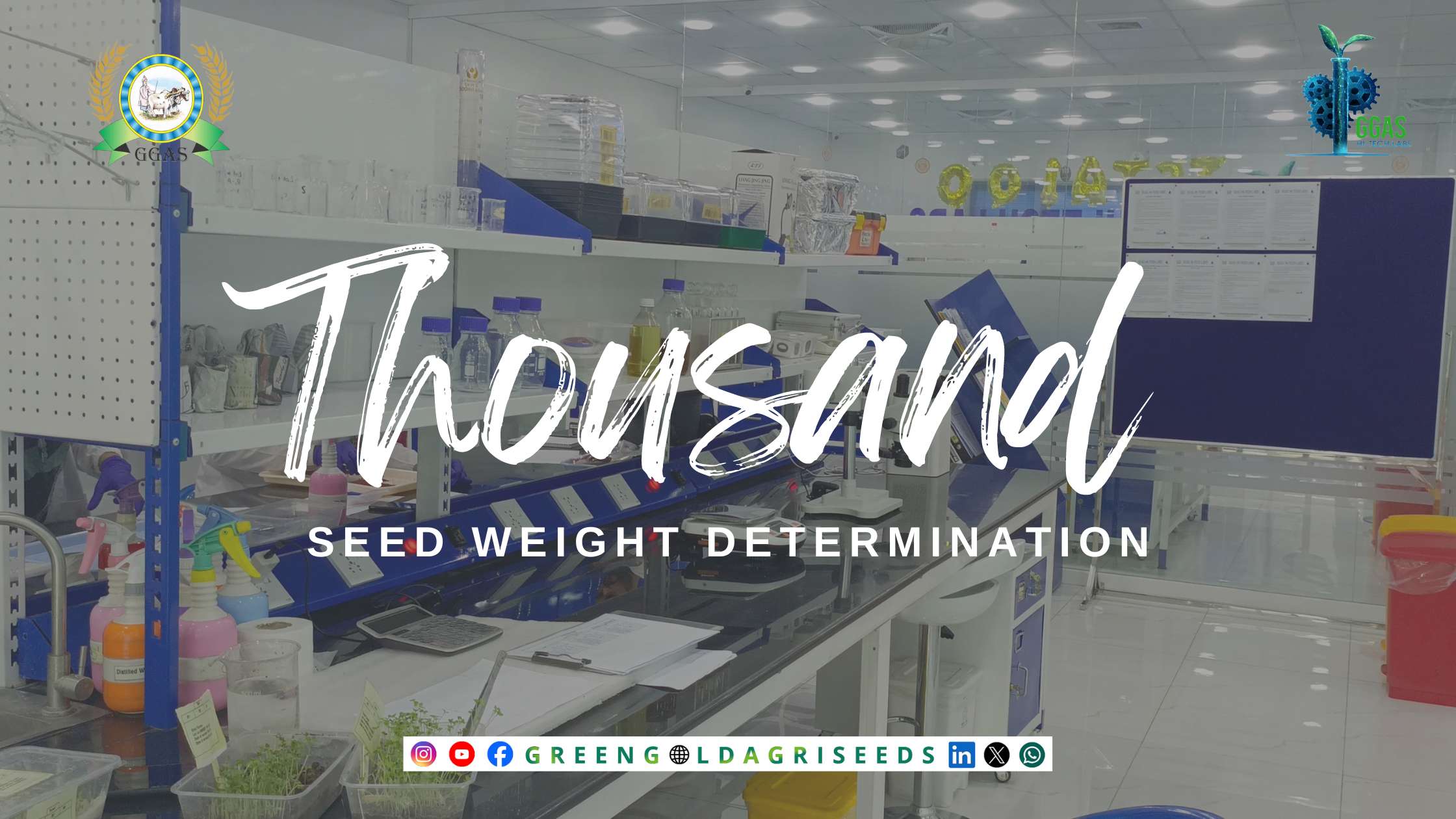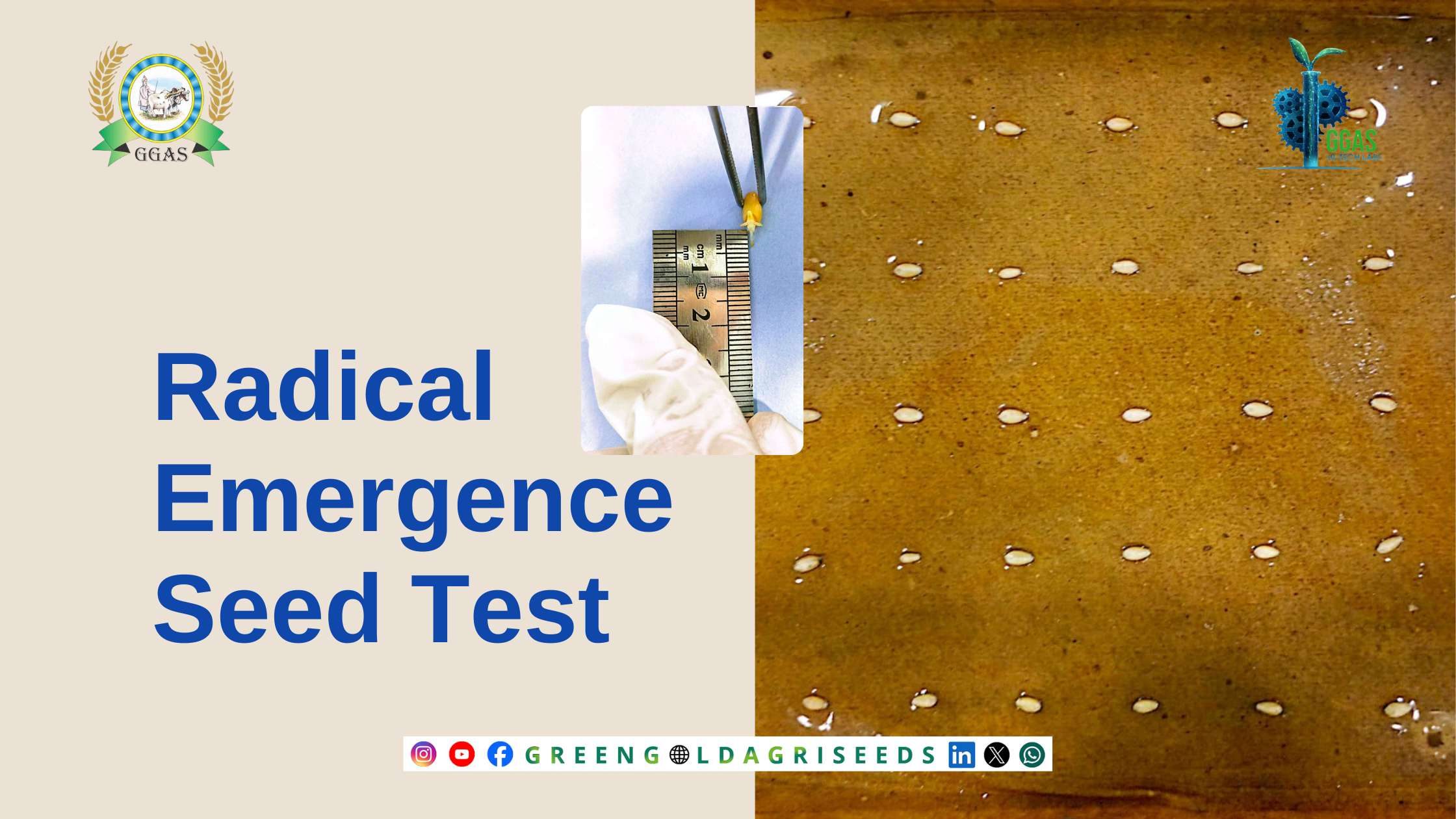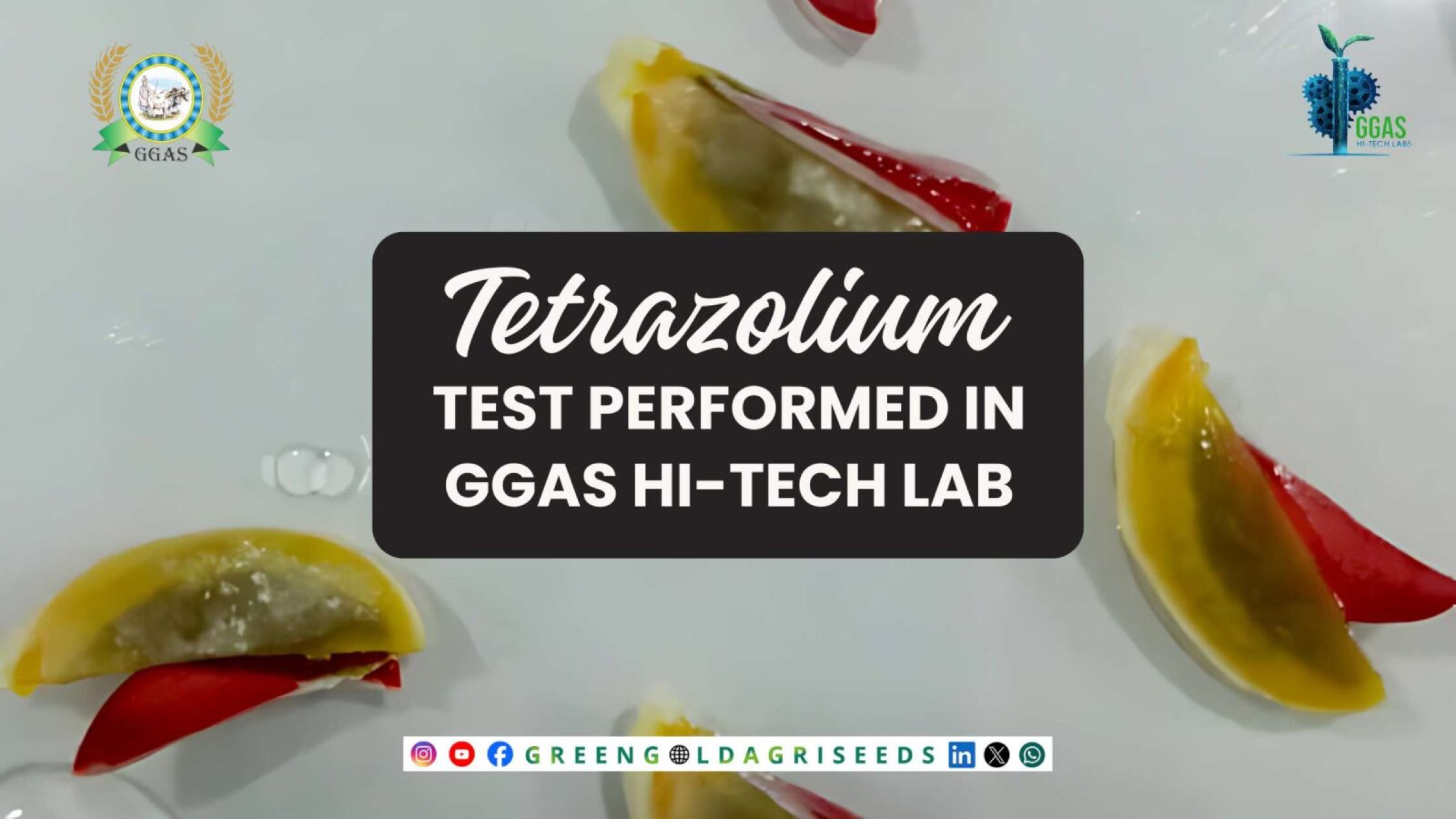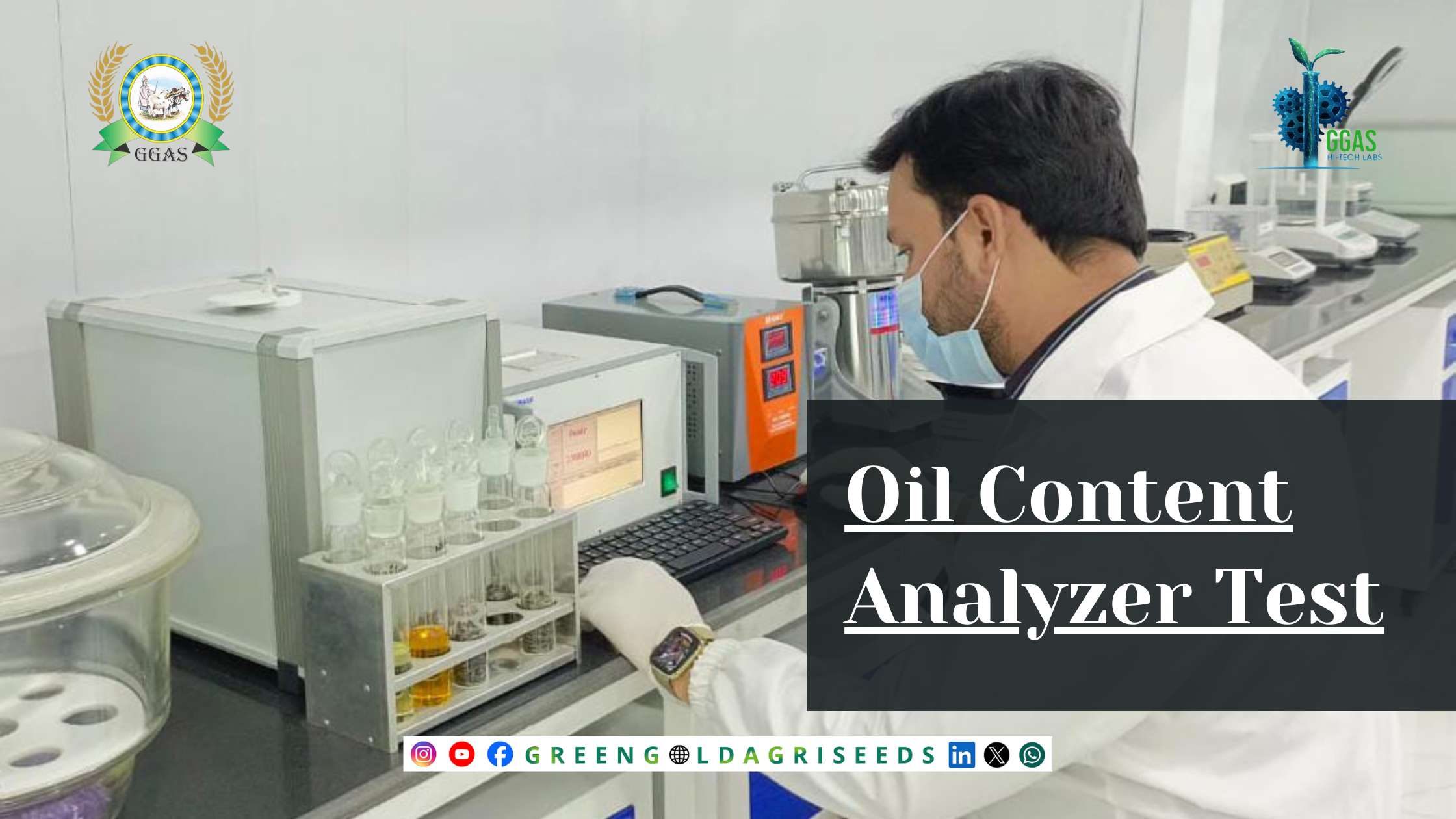No products in the cart.

Thousand Seed Weight Determination Test
The Thousand Seed Weight (TSW) determination test is a basic technique in seed research and agriculture. This measurement has significance since it gives important details regarding the density, size, and general quality of the seeds. TSW is a measure of both seed vigor and genetic potential.
Following ISTA standardized methods, the TSW is calculated by two protocols.
PROTOCOL I:
- Count the whole seed fraction, and record the value.
- Weigh the pure seed fraction in grams, with a minimum number of decimal places, and record the value.
- Calculate the TSW by putting the above recorded values in the ISTA recommended formula.
PROTOCOL II:
- Count 8 replicates of seeds, each of 100 pure seeds.
- Weigh each replicate in grams, with a minimum number of decimal places, and record the value.
- Calculate the TSW by the statistical calculations standardized by ISTA.
BENEFITS:
- TSW is crucial to agronomic practices since it makes it possible for farmers to determine exact planting rates. Farmers can calculate the ideal number of seeds required to produce desired plant populations per hectare or acre by knowing the weight of a thousand seeds.
- With the use of high-quality expensive seeds and modern agronomic practices, the seed rate per acre has evolved from seed weight to the number of seeds per acre. This upgrade has added to the importance of the precise Thousand Seeds Weight test.








